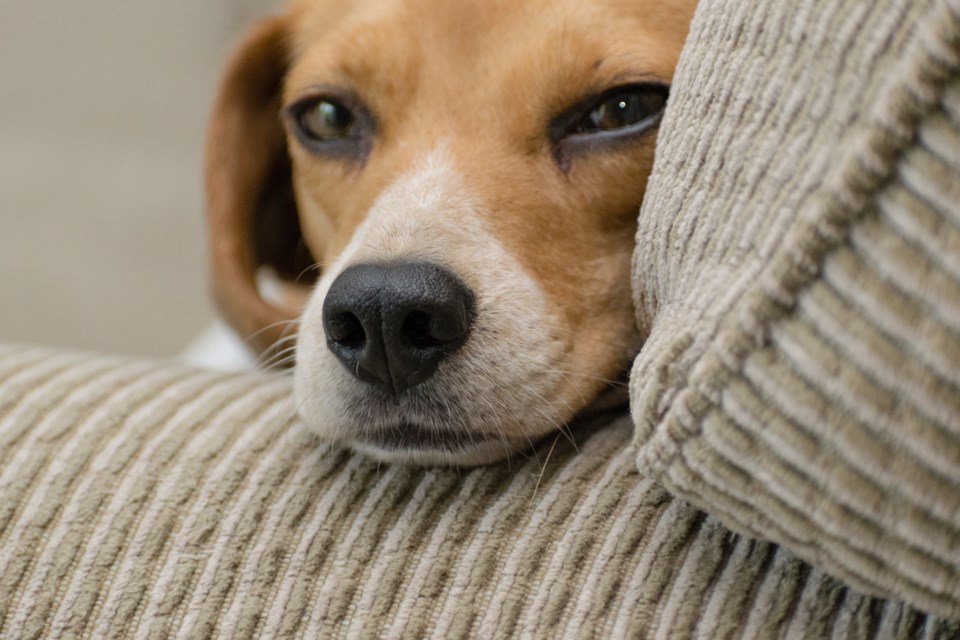During the holidays many people make the season special for the ones they love, including their pets. But could you be making your pet sick?
Nearly 85% of dog owners and 76% of cat owners consider their pets as family, according to a survey conducted by the American Veterinary Medical Association.
"American pet owners are transforming the cultural definition of family," Southern Methodist University sociologist Andrea Laurent-Simpson told Phys.org.
Along with this change comes a new way of looking at pets around the holidays. Families are not only making the holidays special for each other but for their pets as well by sharing the holiday meal or even dressing pets up in matching outfits.
According to Colleen Carnes, veterinarian and owner of Olde Towne Animal Medical Center in Longmont, sharing the holiday meal can cause serious health problems for pets.
Foods consumed by humans — especially those traditionally prepared during the holidays — can be particularly fatty and rich, Carnes said. These foods can make pets very sick.
Fatty foods can cause pancreatitis in animals. The pancreas has two jobs: to secrete digestive enzymes to help break down food and to secrete insulin and glucagon.
When pancreatitis occurs, inflammation disrupts the normal functions of the pancreas causing digestive enzymes to be prematurely activated and released. This can cause the body to begin digesting itself, according to Veterinary Partner.
“The result can be a metabolic catastrophe,” the website states.
There are many things that can lead to pancreatitis in animals, but veterinarians agree that a sudden high-fat meal can be one of the causes.
Tryptophan — which is found in turkey — can be good for pets as it can help them calm down, Carnes said. However, she still advises not sharing table scraps with pets as “turkey can be fatty too.”
There are several ingredients within traditional foods that can make pets sick that many people may not know about. Garlic and onions can cause anemia in pets, according to Carnes.
Not only are there health risks but there are behavioral risks that come with sharing your meal with pets.
Carnes suggests not feeding your pets from the table because they can become accustomed to the effort and develop bad behaviors as a result.
Some pets are just curious and the holidays bring new adventures to explore.
“A majority of the time pets get into trouble is not owners doing anything intentionally. A lot of time pets get into stuff that they shouldn’t,” Carnes said.
Cats are notorious for eating tinsel off of Christmas trees, which can cause an obstruction, Carnes said. She also suggests keeping holiday light cords secure to keep cats from playing with them.
“We see the ingestion of inappropriate objects pretty regularly,” Carnes said. “I’d say there is a slight uptick in it during the holidays. I’d say if you asked an emergency vet, they would say there is a significant increase.”
If your pet does ingest something that they should not, Carnes recommends calling your veterinarian if during regular business hours or calling a local emergency veterinary clinic if not. The American Society for the Prevention of Cruelty to Animals Poison Control hotline is 1-888-426-4435.


